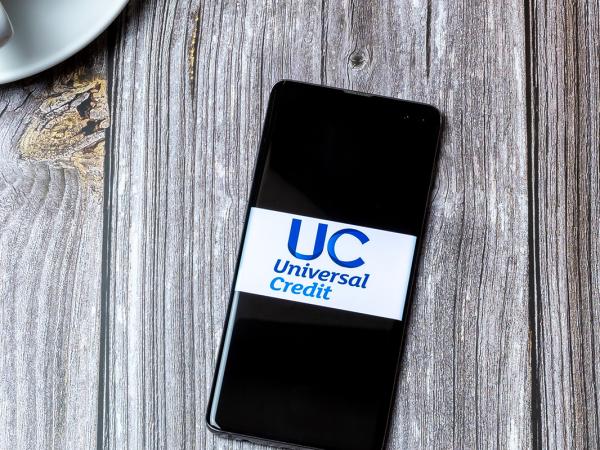Universal credit
Universal credit is a means-tested benefit for people of working age to help with living costs. It covers people who are out of work, in work and those who cannot work. It can include amounts for for certain housing costs, children and childcare costs with additional amounts for people who have disabilities or caring responsibilities.

Content on this page:
Overview
Universal credit was introduced in 2013 and is now available in all parts of the UK. It is dealt with by the Department of Work and Pensions (DWP) in Great Britain and by the Department for Communities (DfC) in Northern Ireland. Universal credit replaces six means-tested benefits and tax credits. These are:
- Income-based jobseeker’s allowance
- Income-related employment and support allowance
- Income support
- Working tax credit
- Child tax credit
- Housing benefit
Universal credit roll-out
Universal credit was introduced in April 2013 and completed its roll-out across the UK in December 2018. It is now fully available in all parts of the UK. As a result, HMRC state that it is no longer possible to make a brand new claim for tax credits. The only exception to this is for certain people who are granted refugee status.
Most existing tax credit claimants will need to move to either universal credit or pension credit. For tax credit claimants, the move to universal credit is expected to be complete by the end of the 2024/2025 tax year. There is more information about the move and how existing tax credit claimants are affected by universal credit in our moving to universal credit section.
Things to be aware of with universal credit
Although universal credit is replacing some means-tested benefits and tax credits, it is not a like for like replacement and there are some differences that you may need to be aware of.
It is not possible to claim both tax credits and universal credit at the same time. If you currently claim tax credits and also make a claim for universal credit, your tax credits award will end (terminate). See our existing tax credit claimants page for more information. If you are already getting tax credits, it is very important to check carefully or get advice before making a claim for universal credit.
Even if you are eligible to make a claim for universal credit, that does not necessarily mean that you will be entitled to universal credit as you have to meet certain basic and financial conditions and then any amount of universal credit you will get is based on the your income, your partner’s income (if it is a joint claim), your capital and circumstances.
To get universal credit, in most cases you’ll be asked to accept an agreement called the ‘claimant commitment’. This sets out the responsibilities that you have accepted and the consequences of not meeting them. The claimant commitment is tailored to your circumstances and you are obliged to keep to it. In a joint claim, you both may need to both look for work of up to 35 hours a week – this is called conditionality. The number of hours you need to look for work depends on your individual circumstances, some people may not be required to look for work.
Universal credit is currently not available if you have reached your state pension qualifying age. In a joint claim, you currently cannot claim universal credit if both you and your partner have reached your state pension qualifying age. If you have reached state pension age and cannot claim universal credit, claiming pension credit instead may be an option. From August 2024, DWP say they will be contacting existing tax credit claimants who have reached state pension age and asking them to apply for either universal credit or pension credit, depending on their circumstances.
A mixed age couple is one where one person has reach state pension credit age but the other member of the couple has not. If you are part of a mixed age couple then in most cases you will need to claim universal credit rather than pension credit, although there is one exception to this. The exception allows mixed age couples who were in receipt of pension age housing benefit in 14 May 2019, and who have continued to receive it, to claim pension credit instead of universal credit. If you think this exception may apply, you should get specialist welfare rights advice.
From February 2019, pension credit also includes support for children through the inclusion of a child element for each child or young person you are responsible for. It is also expected that pension credit will be changed over the coming years to include additional support for pension-age claimants who need help with expenses such as housing costs.
Entitlement to universal credit, and the amount of an award, can be affected if you have savings or other capital of £6,000 or more. See our capital and universal credit section for more information.
For universal credit, once your child reaches age 16 they become a qualifying young person and can be included in a universal credit claim up to (but not including) the 1st September following their 16th birthday. After that, if they remain in full-time non-advanced education or approved training and they were enrolled on, or started, the course before they were 19, they can be included up to (but not including) the 1st September following their 19th birthday. This is different to child benefit and to child tax credit, where a qualifying young person can be included in a claim until they reach age 20 as long as the course started before their 19th birthday.
The way universal credit works for people who are self-employed is also different to working tax credit. See our self-employment and universal credit section for more information.



